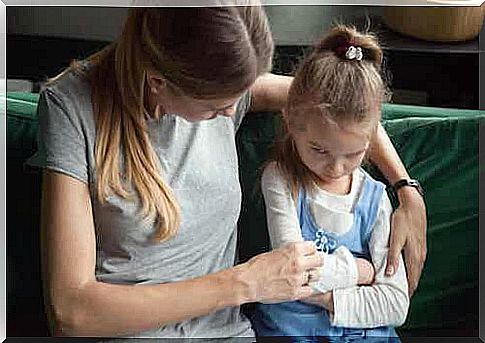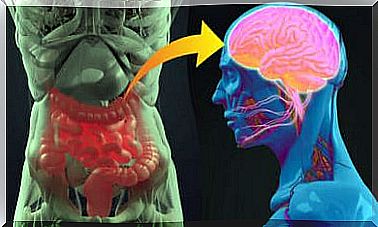Parents With Autism Spectrum Disorder

In our society, parents with autism spectrum disorder seem invisible. If we look for studies or research on the subject, we always start from the “neurotypical parents who take care of children with autism” scheme.
Somehow, we are neglecting a reality that is more common than one might think and that has specific characteristics that we need to know. Statistics tell us that more than 1% of parents could be on the autism spectrum.
This shows us an obvious fact: many people have not yet received a correct diagnosis about their condition. The reason is simple, we are faced with a neurobiological condition that presents a wide range of symptoms and needs that are not always evident.
There are people with Asperger’s syndrome and others with Rett’s syndrome. People with severe communication limitations and others who simply do not suspect they have a disorder. There are men and women with high functioning autism (HFA) who are unaware that their limitations, problems and difficulties are associated with this neurobiological reality.
Some of them have already started a family and give their children an educational model with interesting characteristics to analyze.

What Are Parents With Autism Spectrum Disorder Like?
Having Asperger’s syndrome or an autism spectrum disorder doesn’t mean you’re a bad parent. Simon Baron-Cohen, director of the Autism Research Center at the University of Cambridge (England), clearly tells us that people with autism are able to participate in all aspects of life, including parenting.
Edward Ritvo, a psychiatrist at the University of California, submitted an article to the Journal of Autism and Developmental Disorders , titled Eleven autistic parents , which the paper refused to publish ten times. The editorial team argued that it was impossible for people with autism to start a family.
To get his work to be accepted by the scientific community, Ritvo had to change the title by adding the word “possibly”. Even in recent times this condition was considered serious and disabling.
Fortunately, today it is viewed differently. Even so, new studies and data are needed to make progress in this regard. We have an extensive scientific literature on children with autism, but it is not the same for adults with autism, who exist and are part of our society.
These people do their jobs, have their dreams and goals, have a partner, start a family and raise their children. But what characteristics distinguish parents with autism spectrum disorder?
Mothers with autism are more likely to suffer from pre- and postnatal depression
As anticipated, we have few studies on adults with autism spectrum disorder. However, the aforementioned Doctor Simon Baron-Cohen is delving into this aspect. It was he who organized an important project to survey and study parents diagnosed with autism spectrum disorder (ASD) around the world through social networks.
It was found that mothers with autism were more likely to suffer from pre- and postnatal depression. Many of them feel overwhelmed and, above all, lonely. A common aspect is that these women don’t get the support they need to manage the amount of emotion they feel.
After diagnosis, they suffer prejudice and pressure
Pressures and social stigma are another problem parents with autism spectrum disorder face. Once the diagnosis is received, family members, friends or colleagues wonder if the person will be able to take on the responsibilities of being a parent. This causes great suffering.
Parents with Autism Spectrum Disorder: Caring for a Child
Caring for a child is in itself a challenge for any family, nuclear or single parent. Undoubtedly, parents with autism spectrum disorders face a more complex challenge.
Their mind always tends to focus deeply on one aspect. Hence, it is very common for them to make lists to organize daily activities: when the baby cries, change it; when it’s time to take care of the housework, etc.
Overstimulation is a recurring problem
The crying of babies, the screams of older children when they play, the disorder, the television on high volume, video games, etc. All of these aspects can overstimulate many parents with autism spectrum disorder. Overstimulation (sounds, lights, noises, etc.) produces a very stressful overload.
The problem of communication in the social environment in which the child lives
Dr. Baron-Cohen’s survey has provided us with very interesting data. More than 60% of parents with autism spectrum disorder have difficulty communicating with teachers, doctors or other professionals who interact with their children. All of this is exhausting and very annoying.

Parents with autism spectrum disorder and not being able to respond to all of the child’s emotional needs
Parents with this disorder love their children with the same devotion as other parents. They look after them and always try to give their best. However, they are aware of their limitations and not knowing how to manage some aspects.
For example, they suffer from being unable to respond when children have a tantrum. It is more difficult for them to provide support if they are feeling frustrated, angry or sad. Emotional education is a challenge for anyone, but even more so for people with ASD. Furthermore, the problems increase as the child reaches adolescence.
Dr. Baron-Cohen’s online survey also shows us another aspect. It is very common for parents with autism spectrum disorder to adopt an authoritarian educational model.
To conclude, we need two things: to increase research on autism in adulthood and to develop support services for parents with the condition. In this way, they would feel more helped and with additional skills to face the adventure of parenting and rearing their children.









